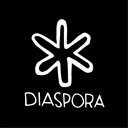Top GNU social Alternatives for Decentralized Communication
GNU social, a continuation of the StatusNet project, has long served as a robust platform for both public and private social communication. Widely adopted, even by the Free Software Foundation and Richard Stallman himself, it offers a decentralized approach to social networking. However, as the digital landscape evolves, users often seek different features, platforms, or community focuses. This guide explores the best GNU social alternatives available today, catering to various preferences for privacy, decentralization, and functionality.
The Best GNU social Alternatives
Whether you're looking for a more feature-rich experience, a different federated network, or simply a fresh take on social media, these GNU social alternatives offer compelling options.

Mastodon
Mastodon is a popular free and open-source, decentralized microblogging engine. As a federated platform, it eliminates concerns about a single company controlling your data, making it an excellent GNU social alternative. It's available on Web and Self-Hosted platforms and supports ActivityPub, offers content warnings, and is ad-free, promoting a community-based, privacy-friendly environment.

Twitter is an online social networking service that enables users to send and read short messages. While not open-source or decentralized like GNU social, it offers a massive user base and real-time trends. Available on Free, Windows, Web, Android, iPhone, and many other platforms, it focuses on threaded conversations, hashtags, and private messaging, making it a viable alternative for mainstream social interaction.

Diaspora
Diaspora is a federated social networking service designed with privacy as a core focus, serving as a strong privacy-aware GNU social alternative. It is free and open-source, available on Linux, Web, BSD, and Self-Hosted platforms. Key features include decentralization, self-hosting options, support for ActivityPub, and encrypted connections, allowing users to share what they want with whom they want.

Facebook is a widely used free online social media and network service that connects people globally. Although not open-source or decentralized, it offers a vast array of features including events, integrated chat, photo sharing, and group messaging. It's available on Free, Windows, Web, Android, iPhone, and many other platforms, providing a comprehensive social experience for those less concerned with decentralization.

Minds
Minds is a free and open-source platform that functions as both a social network and a tool for launching digital brands. It stands out as a strong GNU social alternative for those valuing free speech and decentralization. Available on Freemium, Web, Android, and iPhone, Minds offers anti-censorship features, encrypted chat, privacy protection, and a unique point system for content creators.

Gab
Gab is a social network that champions free speech and individual liberty, offering an open-source and decentralized alternative to GNU social for those prioritizing uncensored communication. Available on Freemium, Web, Android, and Self-Hosted platforms, Gab provides features like live topics, ad-free experience, community-based interactions, and anonymity options.

VK
VK (Vkontakte) is a social network designed to unite people globally and facilitate comfortable communication. While not open-source or decentralized, it offers a comprehensive set of features similar to mainstream platforms. Available on Free, Web, Android, iPhone, and many other mobile platforms, VK includes a music player, photo sharing, video hosting, and a social feed, making it a robust, feature-rich GNU social alternative.

Friendica
Friendica is a distributed social network with a strong focus on decentralization, privacy, and interoperability. As a free and open-source platform available on Linux, BSD, Self-Hosted, and PHP, it makes an excellent GNU social alternative. Its features include federated communication, commodity hosting support, community events, and integrations with other networks like Diaspora and Twitter.

Hubzilla
Hubzilla is a powerful free and open-source platform for creating interconnected websites, featuring a decentralized identity, communications, and permissions framework. It's a highly capable GNU social alternative, available on Web and Self-Hosted platforms. Hubzilla boasts extensive features such as ActivityPub support, OpenID Provider, wide API support, ad-free experience, anticensorship, calendar integration, and robust privacy controls, catering to users who need advanced control over their online presence.

ZeroMe
ZeroMe is a social network built for the distributed P2P network ZeroNet, offering a truly decentralized and open-source GNU social alternative. Available on Free, Mac, Windows, Linux, Web, and Self-Hosted platforms, it focuses on peer-to-peer communication, ensuring a highly distributed and resilient social experience for users.
Choosing the best GNU social alternative depends entirely on your personal priorities. If decentralization and open-source values are paramount, Mastodon, Diaspora, Minds, Friendica, Hubzilla, and ZeroMe offer compelling options. For broader reach, Twitter or Facebook might be suitable, while Gab and VK provide distinct community experiences. Explore these alternatives to find the platform that best fits your needs for social communication and digital freedom.